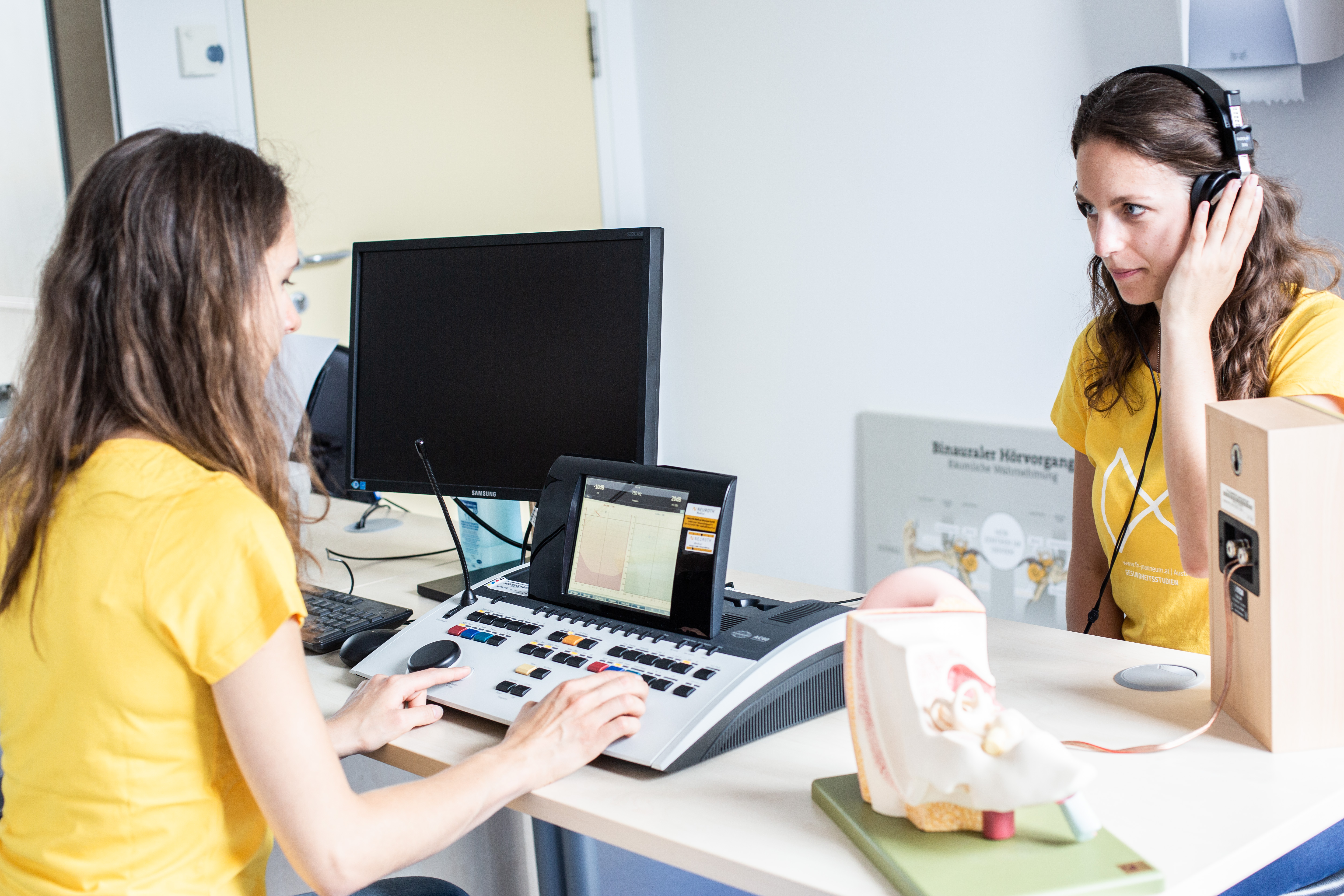
Ready, study, go!
Start your studies top informed.

Study your dream!
All information about studying.

Stay in touch!
Stay connected with the university.

Study with Purpose!
Discover our study programmes.

Educate with Purpose!
Lifelong learning and thinking ahead.

Research with Purpose!
Research from idea to application.

Better together!
As a university we create new opportunities.

Logopedics is a three-year full-time course leading to the academic degree of Bachelor of Science in Health Studies (BSc). During the course, students qualify to practice as professional speech therapists.
Speech therapists work with people of all age groups suffering from language, speech, voice, hearing and swallowing disorders. This includes for example stroke patients who have difficulty swallowing, children who are delayed in speech development or teachers who have developed a voice disorder due to work-related overuse. Following referral by a doctor, speech therapists carry out their own thorough diagnosis, make a treatment plan, if necessary, and provide counselling. Speech therapists also work in teaching and research.
What will I learn?
The logopedic process
The logopedic process involves the diagnosis and treatment of language, speech, voice, swallowing and hearing disorders. This programme will teach you all the knowledge and skills you need to practice as a speech therapist. This includes learning to select and apply the appropriate diagnostic materials, and subsequently to deploy the most suitable therapeutic methods. After learning the theory of diagnostics and therapy, you will put your theoretical knowledge into practice during internships outside the university (3rd to 6th semester) or in the therapy rooms of the programme’s own logopedic teaching practice (4th to 6th semester).
Medical basics and related fields
In order to provide students with an optimal basis for the subject-specific content of the course, the curriculum also includes general medical subjects such as anatomy, physiology and pathology as also specialities like ear, nose and throat medicine, neurology and psychiatry. Related fields such as linguistics, educational theory and psychology also form an important part of the curriculum to enable students to identify and assess influencing factors and relationships.
Personal development
Practical speech, voice and breathing exercises are carried out in small groups helping you to increase your self-awareness and experience the impact of changes in your own voice, breathing etc. This will make the therapy goals clearer and more transparent. Lectures on the topic of communication enable you to extend and improve your own communication skills through video analysis and role play. The focus here is on (further) developing your identity as a therapist.
